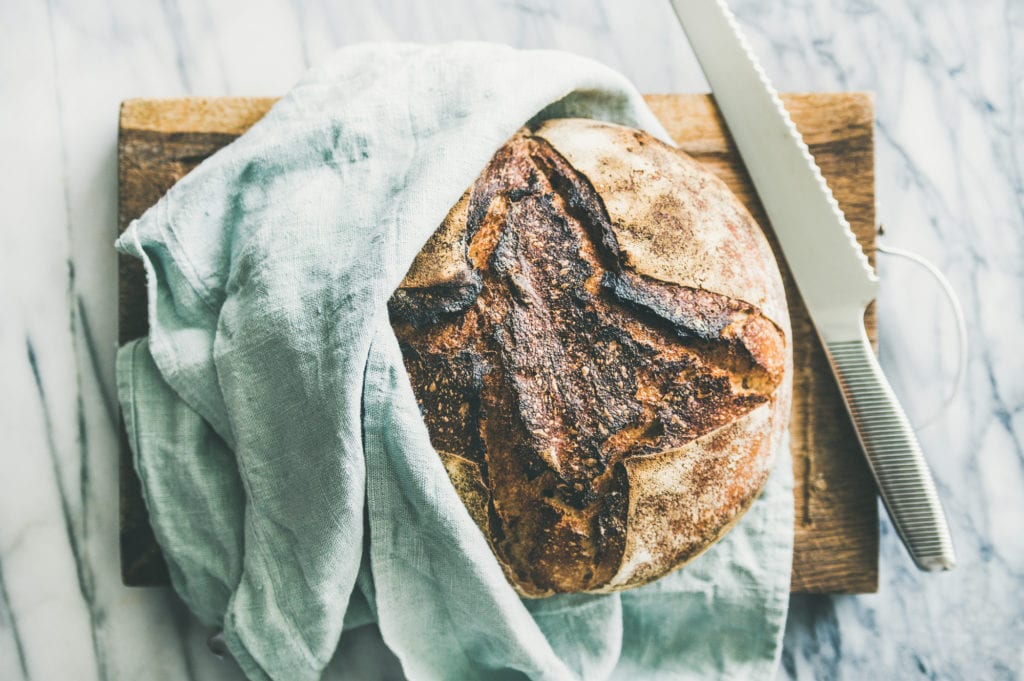
It’s Real Bread week … why not go for sourdough
It’s real bread week here in UK, so we’re taking a look at why sourdough makes a healthy choice
Real bread week kicked off this weekend, highlighting the health benefits of eating real bread as opposed to the stuff you buy in supermarkets (which can contain sugar, vegetable oils, fast acting yeasts and a whole string of chemical-sounding names). So what is real bread? Well, quite simply it is bread made with simple ingredients – flour (unbleached and unrefined), water, yeast and salt. No artificial ingredients or additives to speed up the leavening process. Bread is often demonised these days, but real bread can be a source of fibre, vitamins and minerals
Sourdough is an example of real bread, and is more akin to the kind of bread our grandparents would have eaten. Making it is a slow process, using a mixture of natural yeast and bacteria; a very different process to modern bread making (known as the Chorleywood method), which is all about mass-production, adding fast-acting yeasts and preservatives to speed up this process. It is this slow leavening process that gives sourdough its health benefits.
I see many clients who can digest sourdough but have trouble with ordinary supermarket loaves. This is because grains in wheat naturally contain phytic acid, which can be a cause of digestive issues for many people. Not only is phytic acid difficult for humans to digest, but it also prevents us from absorbing some of the nutrients in the grain. The natural fermentation process involved in making sourdough neutralizes the phytic acid, making it easier for us to digest. Also the acids produced during fermentation help to break down the bread, making it more digestible. Sourdough is also slower to digest than commercial bread, helping keep our blood sugar levels in balance and generally keeping you feeling fuller for longer. Often people who experience bloating and other digestive symptoms eating normal bread may not experience the same symptoms with sourdough. Please note that sourdough is not gluten free, so not suitable for coeliacs. People who have a gluten sensitivity may be able to tolerate sourdough. So if you find bread is causing you digestive discomfort (eg bloating, gas), consider switching to sourdough. Speak to a health provider to find out more.
While some supermarkets are jumping on the real bread bandwagon and selling more artisan-style loaves like sourdoughs, they often contain additives. Your best bet to find real bread will be local bakers or farmers markets, where it is often called ‘artisan’ bread. But check the ingredients to make sure it truly is real bread you’re buying and remember that the fewer ingredients the loaf contains the closer to real bread it will be.
